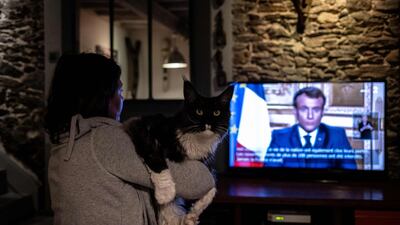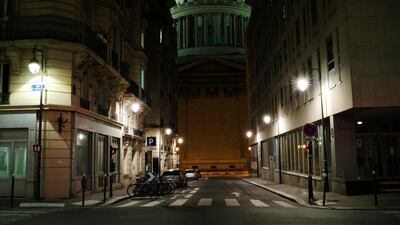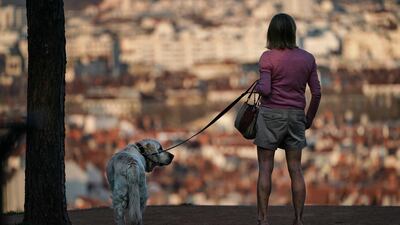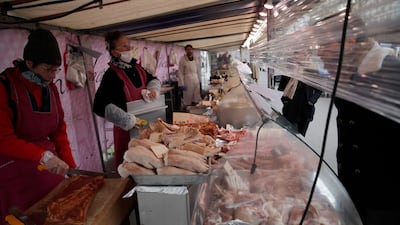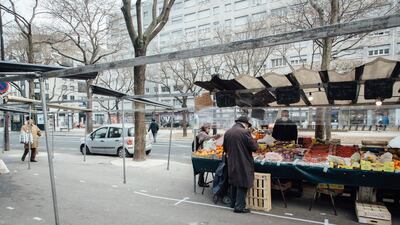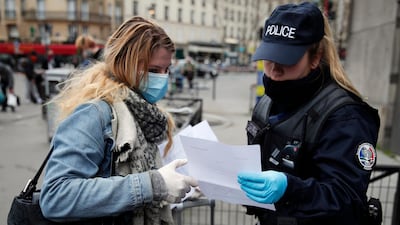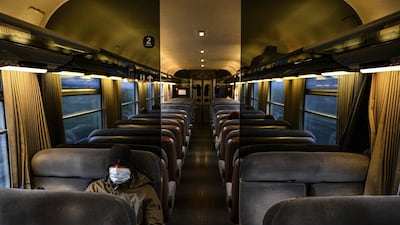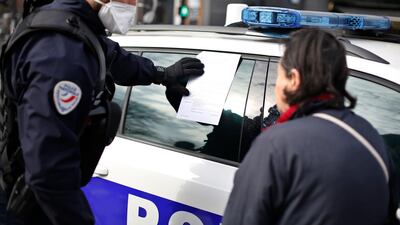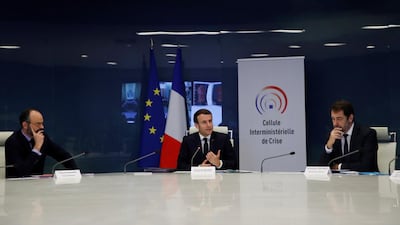Every evening at 7pm in Paris, I have an aperitif with my closest friends to raise a glass and discuss our respective days. Some fill me in on health issues, some seek company and others just want to vent.
By 8pm, most put down their glasses, go to the window, lean out and cheer the embattled French healthcare workers risking their lives for us. It’s a tremendously moving moment – one that has even inspired a trending hashtag, #weapplaud. It reminds me, painfully, of a happier time: the 1998 World Cup, which France hosted and won. The whole country seemed to fill the streets and raise a glass together.
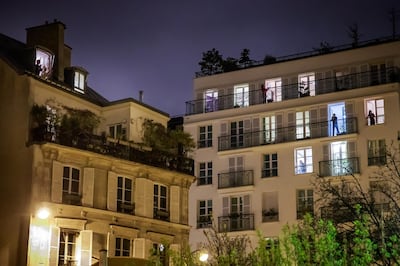
Ten days ago, when I arrived in Paris, the city I lived in for 16 years and call home, the first thing I did was check L'Officiel des Spectacles, the cultural guide. Like many, I was in denial about the coronavirus. I wanted to see which exhibits, films and shows I could see. I planned on shopping at Le Bon Marché, my favourite store, and visiting Georgette, my local brasserie. I organised dinners and was invited to parties.
Paris seemed so far from Wuhan. Even Bergamo, one of the most afflicted areas of Italy, somehow seemed another planet. Many of us thought – I thought – the virus would fly over France, and leave it untouched, as if by magic.
We were wrong. Last Sunday, despite warnings from the Ministry of Health not to gather in large groups, the spring weather drew crowds to the banks of the Seine, the Luxembourg Gardens and the Tuileries. Municipal elections were on and polling stations were open. But those picnics, open markets, votes and last drinks with friends at cafes would come to cost the public dearly.
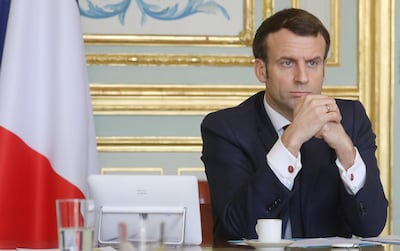
Within days, Parisians were under lockdown. On March 16, President Emmanuel Macron, exercising extraordinary leadership, gave a sobering address. “We are at war,” he repeated several times.
Life from now on, he implied, was going to be radically different. Visits to family and friends are banned. Shops are to be closed. Gatherings are illegal. “All infractions will be punished,” Macron said.
There are over 12,000 cases of the coronavirus in France, and at least 450 deaths so far.
It is indeed a war. I am used to war. I have been a war correspondent for many years. But this time, the enemy – as Mr Macron noted – is invisible.
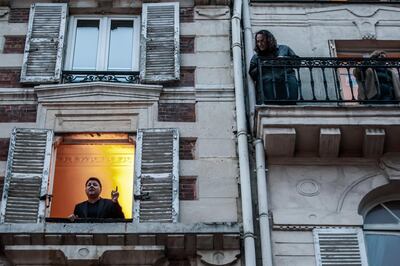
Our new normal began the day after Mr Macron's speech. To go outside, one needs to be armed with an attestation de sortie (permission to leave). More than 100,000 police have been deployed to make sure that individuals' sorties are justified – a forage for food; a doctor's visit; a dog walk.
Fines are imposed, even on the homeless. Outside, I wore my coronavirus “flak jacket”: rubber gloves and a mask. The streets near Invalides were empty. In the distance, the Eiffel Tower loomed, devoid of tourists.
Initially, I was living alone but got anxious and moved in with a kind friend. We had a strict routine: gloves and masks for brief sorties, bowls of eau de javel – a beloved 19th century French disinfectant – set next to sinks for sterilising hands. Coats and shoes were left outside. We took hot showers the minute we arrived indoors. There was no touching: we "hugged" by opening our arms at a distance.
My world had mostly shrunk to my bedroom, overlooking a courtyard. Each day at around the same time, I saw some children kicking a ball, supervised by an unsmiling mother. Their world, too, had shrunk – and become radically dangerous. The World Health Organisation recently announced that children are not immune from the virus.
Five days into my Paris lockdown, when it was clear that restrictions would tighten more, I got an empty train to the Vercors, a remote mountain region. Passengers wore masks and gloves and announcements rang through the carriages, telling us to sit apart.
In a rare act of kindness, a man wearing latex gloves helped carry my heavy bags (laden with books for the long lockdown ahead). Earlier in the day, a man in the street helped me fix my bicycle after I gave him a pair of gloves, too. He spent 20 minutes untangling the chain, motioning for me to stand back as he did.
What effect will the virus have on French society? France has injected a lot of state spending into its already-excellent health care. It has also beefed up its social welfare protection. People are anxious but they also know they have a state that will support them.
In his speech to the public on March 16, Mr Macron pledged 300 billion euros in loans to help businesses . He promised the state would waive social-security payments, utility bills and rent for those unable to pay. There will be tax breaks and compensation for those who cannot work and protection for salaried workers.
This is our new reality. What we initially thought would last two weeks we now know will be much longer.
Long ago, in wartime Sarajevo, I learnt the phrase Système D. It is a French concept, developed during World War II, which basically means making the best of a bad situation. The D is for débrouille: resourcefulness. In Sarajevo, that meant French correspondents smuggling in saucisse and wine, looking the most chic and seeming, despite the misery, to be rising above it.
Our fear today is just as valid as that of wartime. But I believe – as I did during the worst days in Sarajevo – that we will rise above it. We will remember these days. Today, from my window, I see flowers pushing through the winter earth. It is the start of spring. Even the coronavirus cannot stop that.
Janine di Giovanni is a senior fellow at Yale University’s Jackson Institute for Global Affairs and the author of The Morning They Came for Us: Dispatches from Syria. She tweets @janinedigi
